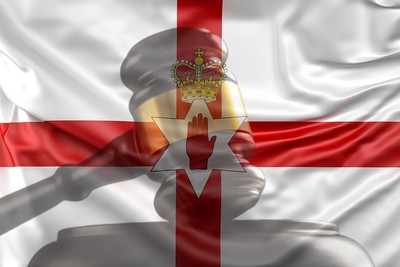 In the United Kingdom, a patchwork of rules and regulations governs various aspects of life, reflecting the unique legal framework that makes up the nation.
In the United Kingdom, a patchwork of rules and regulations governs various aspects of life, reflecting the unique legal framework that makes up the nation.
While many areas of life adhere to uniform national rules, gambling regulations stand out as one of the notable exceptions. While three-quarters of the United Kingdom (England, Wales and Scotland) follow one set of rules regarding gambling, it is a devolved matter in Northern Ireland, meaning they have a separate legal framework.
Gambling in Great Britain: A Unified Approach
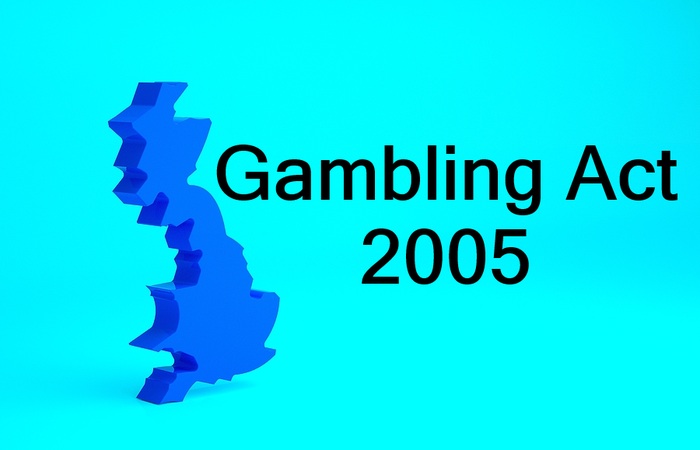
In the majority of Great Britain (England, Wales and Scotland), gambling activities are subject to a comprehensive set of regulations outlined in the Gambling Act 2005. This far-reaching legislation, enacted by the UK Parliament, establishes a framework that governs various aspects of gambling, from licensing requirements to consumer protection. The territorial application of the Gambling Act 2005 covers only Great Britain with the exception of two areas that also apply to Northern Ireland. The two exceptions are:
- Chain gift schemes
- Section 340 of the Act (foreign betting provision of the Betting and Gaming Duties Act 1981)
The offence of advertising unlicensed remote gambling also applies to Northern Ireland as per section 5 of the Gambling (Licensing and Advertising) Act 2014.
Although Northern Ireland is not subject to the vast bulk of the UK’s gambling legalisation, the pair do share the same minimum gambling age of 18 (for most forms of gambling). This is not unusual though given that 18 is a common limit across Europe.
The Role of the Gambling Commission

To enforce the provisions of the Gambling Act, the UK Parliament established the Gambling Commission in 2007, effectively replacing the former Gaming Board for Great Britain. This independent regulatory authority is charged with several critical responsibilities, including granting licenses to operators, ensuring compliance with regulations, and safeguarding consumers’ interests.
Regulators, across industries, vary in their powers and ability to act but the Gambling Commission is certainly not one that lacks teeth. In March 2023, they announced that they would be fining the William Hill Group a record-breaking total of £19.2m for various social responsibility and anti-money laundering failures. They very regularly take action against names that do not follow the rules and have the power to revoke licenses altogether, rather than just issue fines, where appropriate.
Somewhat confusingly, the Gambling Commission is sometimes referred to as the United Kingdom Gambling Commission (UKGC), despite the fact their scope only covers Great Britain. The commission does not involve itself in affairs that occur in Northern Ireland and this has been the case since its creation.
Gambling Regulations in Northern Ireland: From 1985 to Now
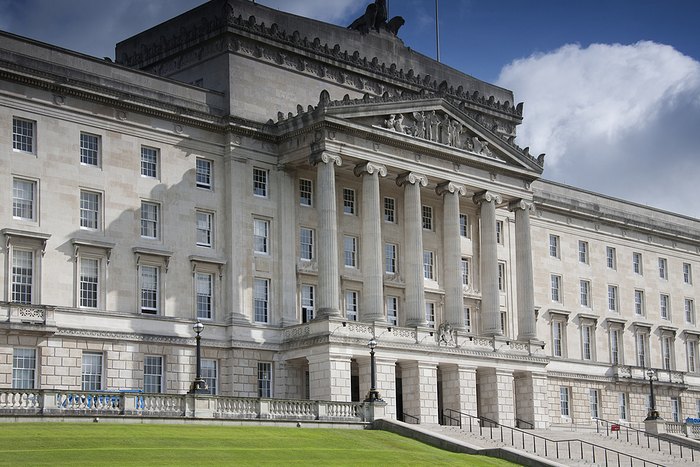
The Betting, Gaming, Lotteries and Amusements (Amendment) Act (Northern Ireland) 2022 was passed by the Northern Ireland Assembly in April 2022
For many decades, with the notable exception of the National Lottery, gambling in Northern Ireland has been regulated under the auspices of the Betting, Gaming, Lotteries & Amusements (NI) Order 1985. While this legislation underwent minor revisions over the years, it witnessed a transformational change in April 2022 with the formalisation of the Betting, Gaming, Lotteries and Amusements (Amendment) Act (Northern Ireland) 2022. This was seen as a much-needed piece of legislation, and one that had gone through extensive consultation, because the 1985 act was increasingly out-of-date. As such, this marked a watershed moment as it represented the first substantial alteration in gambling laws within Northern Ireland in almost 40 years.
Harmonizing with Great Britain and Ireland
The 2022 Act sought to bring Northern Ireland’s gambling regulations more closely in line with the broader UK and Ireland. Notably, it permitted bookmakers and bingo halls to operate on Sundays and Good Friday, aligning with the outcomes of a public consultation held in 2019. This move signalled a commitment to harmonise regional gambling practices and accommodate the preferences of Northern Irish citizens. Indeed, it was a measure supported by a reported 66% of respondents who believed trading hours at bookmakers ought to be relaxed.
In terms of what else the new Act brought, it:
- Removed the upper £1 price limit on the sale of societies lotteries tickets, increasing it to £100.
- Created new offences in relation to allowing children to play gambling machines.
- Created the power to impose a statutory levy on gambling operators.
- Created the power to publish a code of practice applicable to gambling operators.
- Broadened the definition of cheating so that attempted cheating is now an offence.
- Makes gambling contracts legally enforceable.
As you can see, while there are some concrete changes, some of it is merely ‘the power to create’ something. While this does give Northern Ireland the power to widen their scope in future, it does mean that for now, the changes are not as far-reaching as they could have been.
The Ongoing Quest for an Independent Regulator
Despite the largely progressive reforms, Northern Ireland continues to lack an independent gambling regulator. This is a notable contrast to the rest of the UK, which benefits from the oversight of the Gambling Commission. Calls for the establishment of a dedicated regulator have gained momentum, with backing from Communities Minister Deirdre Hargey. The need for an independent regulator is viewed as essential to bolstering consumer protection and ensuring the integrity of the gambling industry. Indeed, it seems particularly unusual not to have an independent regulator given how busy the Gambling Commission is across the Irish Sea. Between the start of 2022 and March 2023, the Commission concluded 26 enforcements cases which led to them issuing £76m in penalty fines.
Horse Racing: A Cross-Channel Contrast
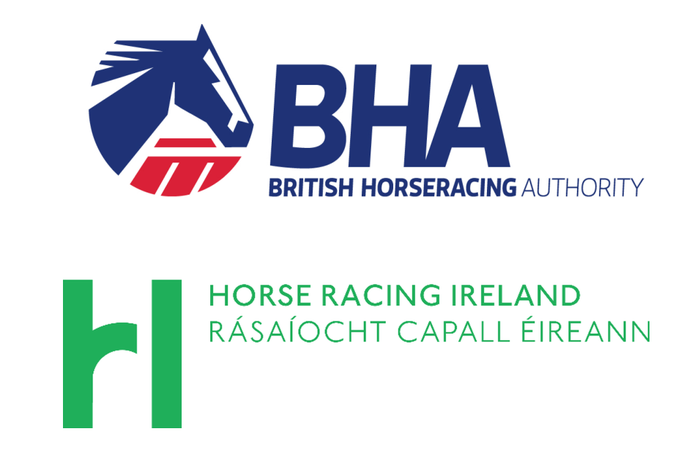
The BHA govern horse racing in England, Scotland and Wales whilst the HRI regulates the Republic of Ireland and Northern Ireland
The disparities in gambling regulations also extend to horse racing, a sport with a rich history and following in the UK. Racing on the eastern side of the Irish Sea falls under the remit of the British Horseracing Authority, while the entire island of Ireland, including Northern Ireland, is governed by Horse Racing Ireland (HRI). This division becomes particularly evident when examining prize money for races at the two Northern Irish courses, Down Royal and Downpatrick, as winnings are awarded in euros instead of pounds.
Other Differences Between GB and Northern Ireland
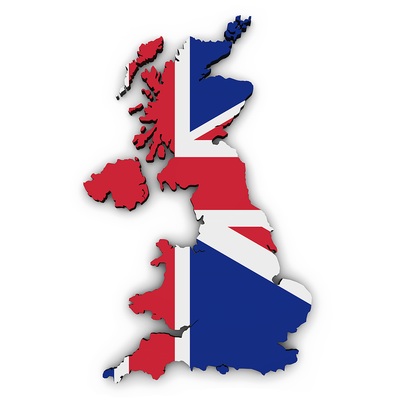 While the Betting, Gaming, Lotteries and Amusements (Amendment) Act (Northern Ireland) Act 2022 certainly helped create a closer alignment between Great Britain and Northern Ireland, differences still exist aside from the lack of a regulatory body. Notably, the Northern Irish Act uses different terminology and does not differentiate between skill-based betting and chance-based betting. Instead, NI uses the term ‘competitions’ to loosely cover both.
While the Betting, Gaming, Lotteries and Amusements (Amendment) Act (Northern Ireland) Act 2022 certainly helped create a closer alignment between Great Britain and Northern Ireland, differences still exist aside from the lack of a regulatory body. Notably, the Northern Irish Act uses different terminology and does not differentiate between skill-based betting and chance-based betting. Instead, NI uses the term ‘competitions’ to loosely cover both.
Even with the differences though, the two are relatively close to one another… for now. The Northern Ireland legislation runs a risk of being quickly outdated though as the UK Government has plans to release their own sweeping update of the existing Gambling Act. The ongoing Gambling Act Review has been looking into some quite significant changes that would alter the betting landscape across Great Britain.
One suggestion being looked at is more stringent affordability checks. One proposal is that when a player registers a £125 net loss within a 30-day period, a ‘light touch’ financial check will need to be carried out. When losses increase to £1,000 within 24 hours or £2,000 within 90 days, then a more detailed financial risk assessment would take place. The exact figures may change but it does seem likely that some form of affordability measure like this will be made a legal requirement in the near future.
With this being just one example of the progressive changes we may see, Northern Ireland could fall behind in some areas, just as it was pre-2022. That said, the Department for Communities in Northern Ireland have been investigating a similar proposal themselves. In this case, there would potentially be a £100 loss trigger limit which, when met, would see operators refuse to accept payments from customers who have not submitted an affordability check.
It is also possible that firms in Northern Ireland could voluntarily opt in to the measures implemented in Great Britain. This is what initially happened when the upper stake limit on fixed-odds betting terminals was slashed to £2. The rules did not apply to Northern Ireland but some bookmakers voluntarily committed to the limit early on.
So, the major reforms to gambling laws in Great Britain may not necessarily create larger differences between the two regions but it does leave the potential for it. Regardless of what happens though, there will always be a significant difference until Northern Ireland decides to establish an independent gambling regulator.
